It turns out the animal kingdom has more emotional intelligence than half the people you’ve dated. While your situationship spirals at the mere mention of “Where is this going?”, monkeys are holding funerals and elephants are co-parenting like pros. From loyalty to emotional depth, animals show us that commitment isn’t rocket science—it’s instinct. Maybe it’s time we stop overanalyzing red flags and start learning from the creatures who actually know how to love. Here’s what animals are doing better than your almost-relationship ever could.
1. Monkeys Mourn Their Dead, But Your Situationship Can’t Text Back
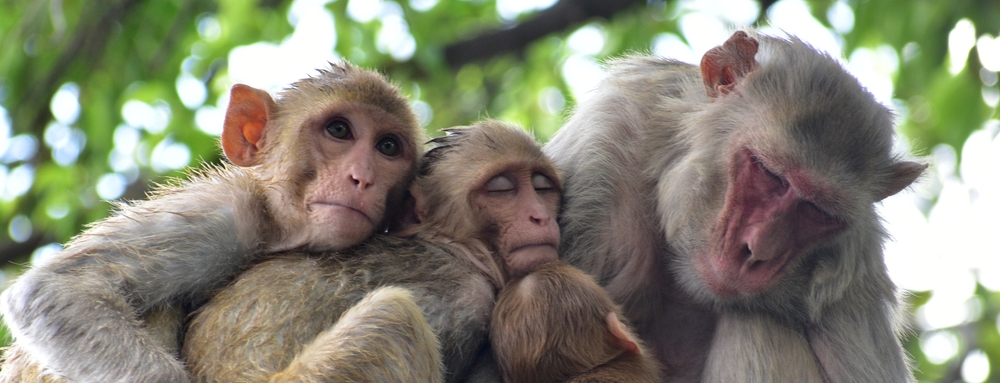
When a monkey loses a friend or relative, it doesn’t just move on—it grieves. In a widely cited study published in Current Biology, researchers observed rhesus macaques grooming, carrying, and refusing to leave the bodies of their deceased infants for days. They showed signs of depression, social withdrawal, and even changes in appetite—basically, all the symptoms you’d see in a heartbroken human. These animals didn’t need couples therapy to understand the concept of loss; it was baked into their instincts. The connection was real, and so was the pain of losing it.
Meanwhile, your situationship panics if they accidentally “double-like” one of your posts. They ghost for a week if you bring up “feelings,” and their version of loss is skipping brunch. The emotional depth of a grieving monkey puts some humans to shame. If a monkey can show up for emotional closure, surely someone who shares 98% of your DNA can manage a coherent response. But here we are—left on read while monkeys are out here honoring their dead.
2. Bonobos Use Intimacy To Bond, Not Manipulate
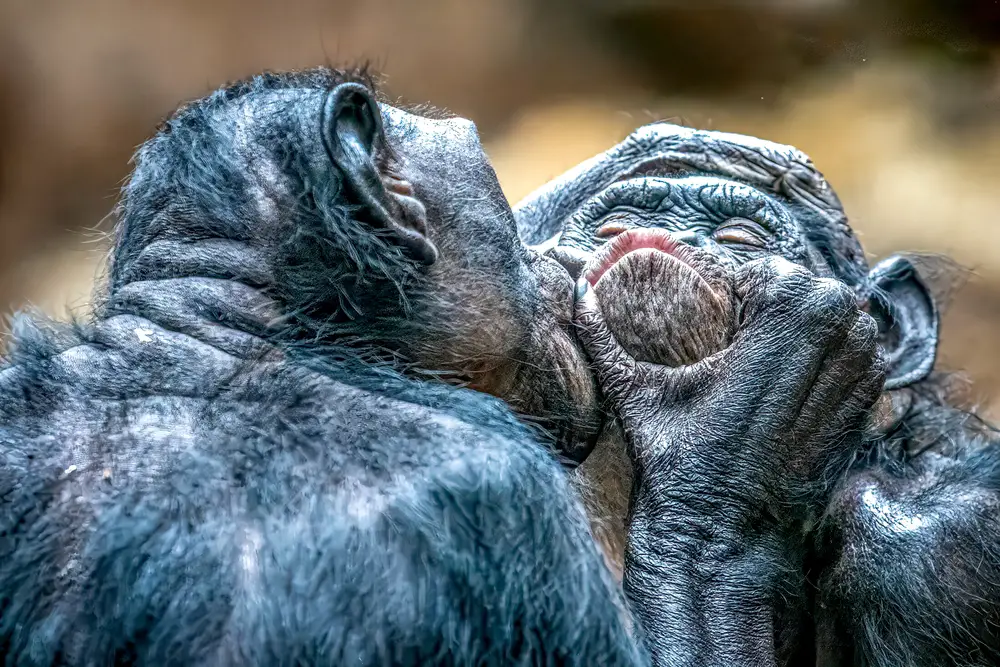
Bonobos, one of our closest genetic relatives, are famous for their emotional intelligence and sexual diplomacy. They use physical affection, including sex, not as a power play but as a tool for peacemaking, bonding, and conflict resolution. There’s no passive aggression—just connection. They understand the role of vulnerability in keeping a community emotionally cohesive. And they don’t play games—if they want closeness, they go for it.
Your situationship, on the other hand, has weaponized intimacy. They use affection to keep you hooked just long enough before retreating into a cold, distant void. It’s a hot-and-cold pattern that’s more about control than connection. Bonobos might be wild, but at least they’re emotionally fluent. Maybe it’s time we start looking to them for relationship advice instead of TikTok therapists.
3. Elephants Form Life-Long Emotional Bonds
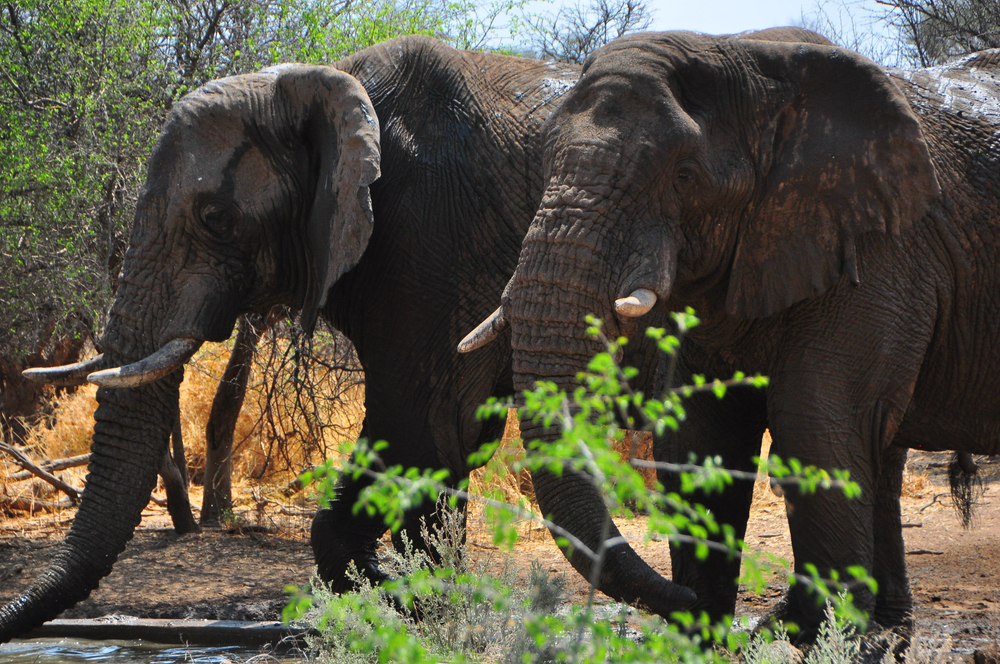
Elephants are known to grieve, revisit burial grounds, and even touch the bones of their lost loved ones with gentle curiosity. According to Dr. Joyce Poole, a renowned elephant behavior expert, elephants also form deep emotional bonds with companions—both familial and platonic—that can last a lifetime. They recognize each other’s voices even after years apart and mourn when those bonds are broken. These relationships aren’t transactional or superficial—they’re rooted in loyalty and long-term memory. Elephants quite literally never forget, especially not the ones they loved.
Now think about your situationship that “doesn’t believe in labels.” If loyalty were measured in tusk size, they’d barely qualify as a squirrel. They’re often present only when it’s convenient, and disappear at the first sign of emotional depth. Compared to elephants, they have the memory of a goldfish and the commitment of a vending machine. And yet, somehow, they still have the audacity to call themselves “emotionally unavailable” as if it’s an identity trait.
4. Wolves Choose Their Partners With Purpose
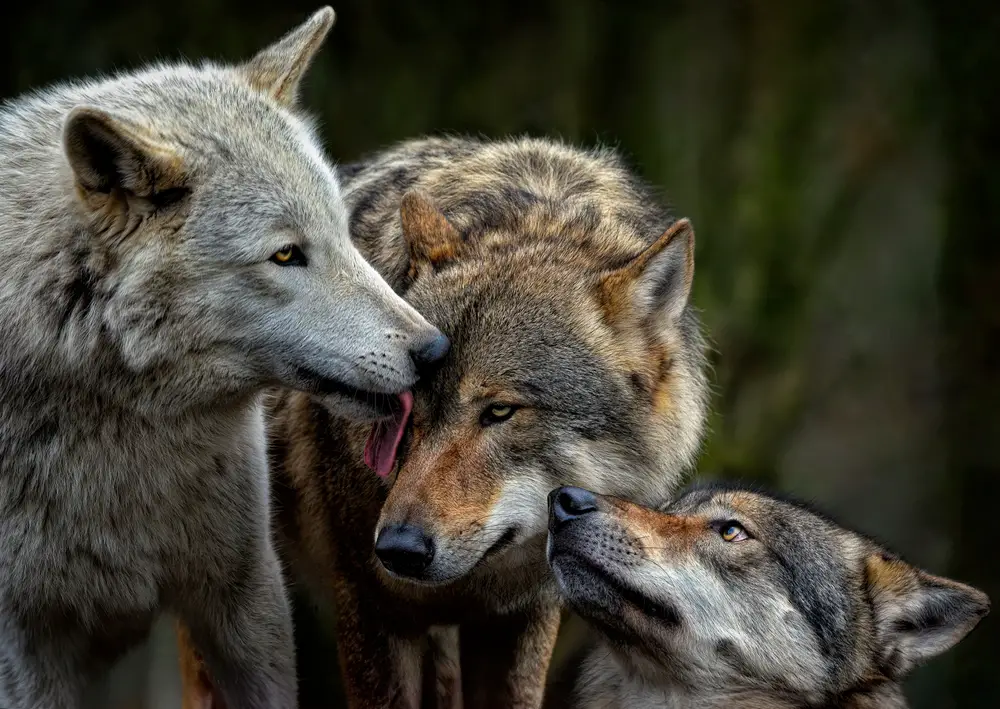
Wolves don’t swipe right on impulse. In the wild, they often mate for life, choosing partners not just for reproductive convenience but for their reliability and compatibility within the pack. These bonds are tested through time, hardship, and shared responsibility. When one wolf falls ill or is injured, their mate doesn’t bail—they double down on support. It’s partnership with purpose, not performance.
Meanwhile, your situationship can’t even pick a restaurant, let alone a future. They freak out if you suggest planning something beyond the weekend. Wolves would die for their mate; your person won’t even commit to dinner without checking if they “feel up to it.” Nature isn’t asking for perfection—just mutual effort. Too bad your partner treats the bare minimum like a marriage proposal.
5. Dolphins Remember Their Friends For Decades
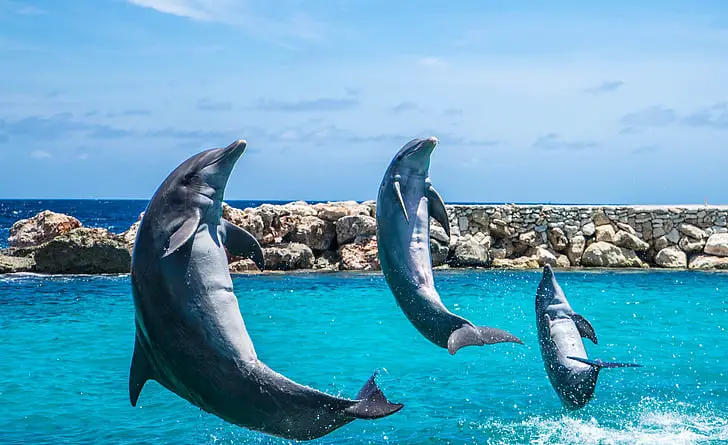
Dolphins have complex social lives and form friendships that can last more than 20 years. According to a study published in Proceedings of the Royal Society B, dolphins remember the unique signature whistles of their companions long after being separated. These memories endure through time and distance, showing a level of social memory most humans would envy. They aren’t afraid of history—they embrace it. Friendships, for dolphins, are sacred.
Contrast that with your situationship, who claims “people come and go” like it’s some spiritual mantra. They can’t even remember your birthday, let alone maintain long-term emotional investment. Their social connections are more like seasonal leases than bonds. Dolphins make space for each other; your situationship avoids eye contact in the cereal aisle. Who’s the real evolved species here?
6. Crows Show More Foresight Than Most Dating App Users
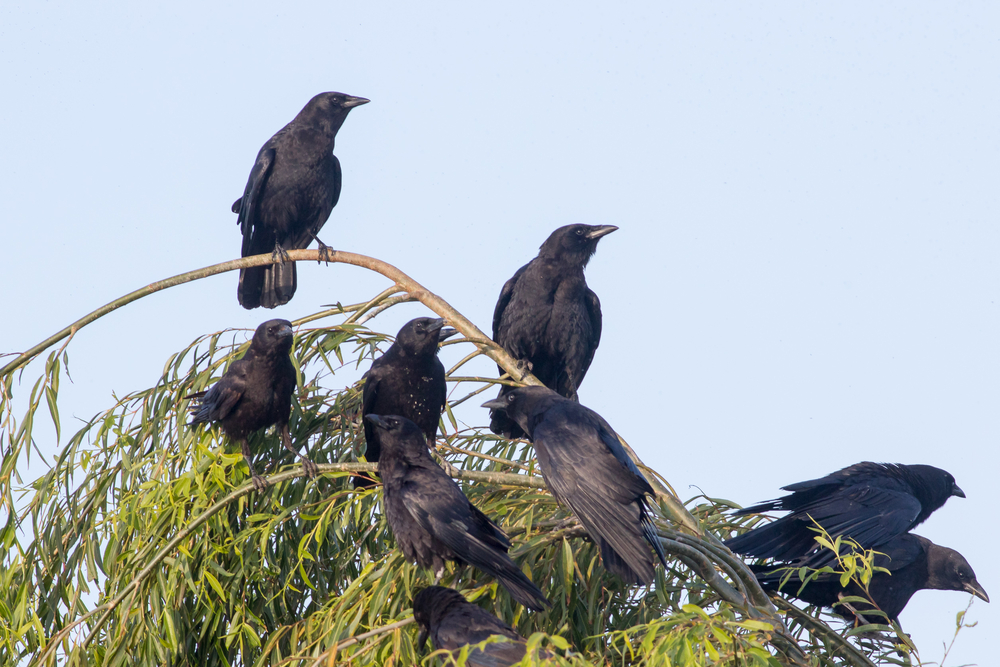
Crows are clever—really clever. They can plan ahead, problem-solve, and even use tools in ways that suggest high-level reasoning. When it comes to social life, they remember faces, hold grudges, and form alliances. They make mental maps of whom to trust and whom not to, all based on past interactions. It’s all very strategic—but grounded in awareness and experience.
Now imagine if your situationship used even a fraction of that energy to map out their emotional patterns. Instead, they stumble through relationships like a moth in a microwave, surprised every time someone wants clarity. Crows are calculating, but they’re consistent. Your person, however, treats emotional responsibility like it’s optional software. Maybe they should study a murder of crows instead of ghosting like one.
7. Orcas Parent Like Pros, And Co-Parent Better Than Most Exes
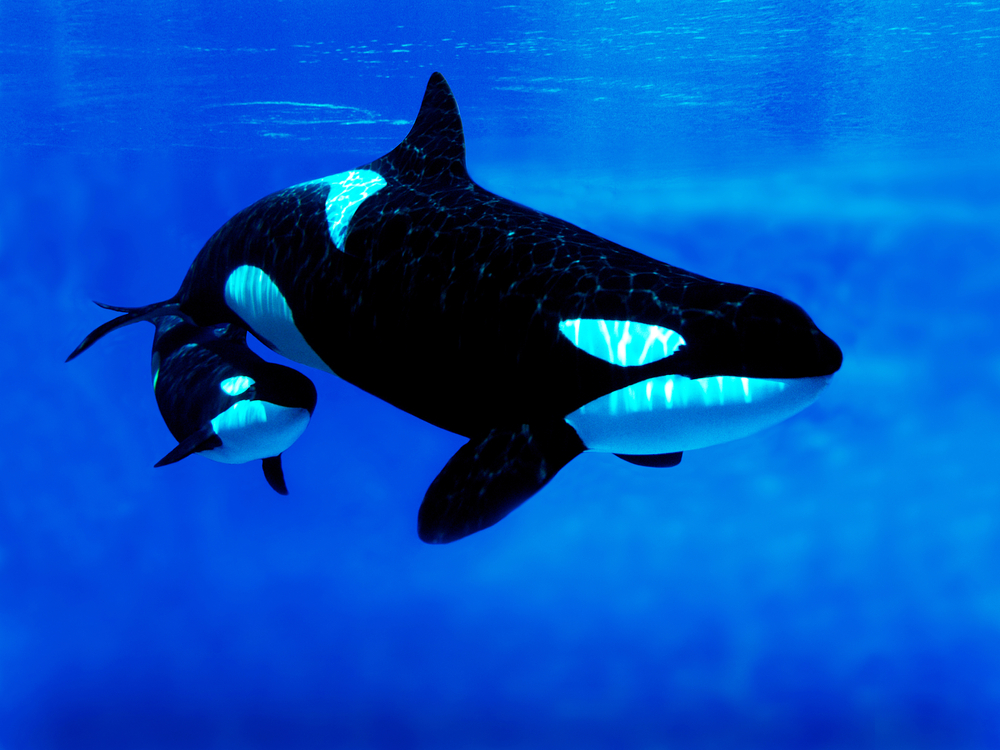
Orcas, or killer whales, have one of the most advanced social structures in the animal kingdom. Mothers are known to care for their young well into adulthood, and families stay together in tightly bonded pods. A study led by Dr. Darren Croft at the University of Exeter found that orca grandmothers significantly increase their grand-offspring’s survival rates, highlighting intergenerational emotional investment. These are creatures who understand long-term responsibility and show up without hesitation. The commitment isn’t limited to biology—it’s cultural within their species.
Now think of your situationship, who can’t even handle a follow-up text after spending the night. Co-parenting? They’d probably schedule it like it’s a dental cleaning and cancel twice. Orcas raise entire generations; your person struggles to raise the emotional bar above “vague.” If killer whales can manage emotional maturity underwater, surely your crush can manage a calendar app.
8. Meerkats Delegate And Communicate Clearly
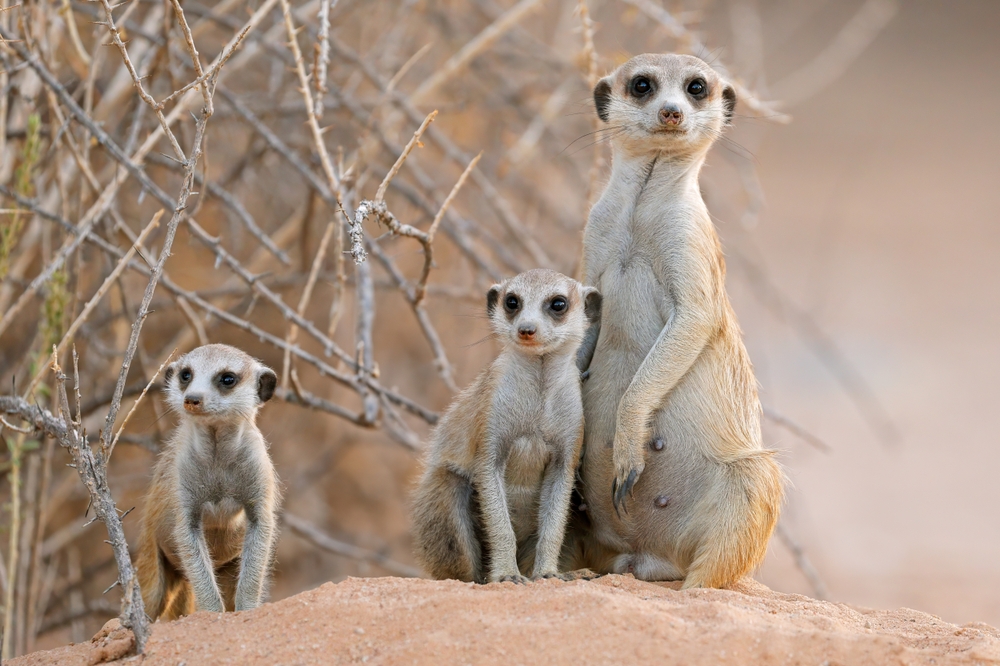
In meerkat society, roles are distributed and understood. Some stand guard, some dig, some babysit—each member of the group contributes to the survival and harmony of the whole. There’s no confusion about who does what. If danger arises, they chirp specific warning calls that vary by threat type. They run a tight operation—tiny but mighty.
Your situationship, however, still thinks being “emotionally unclear” is a vibe. They’re allergic to responsibility and treat every reasonable question like an interrogation. Where meerkats collaborate, your person deflects. They’re not confused—they just don’t want to be clear. Meanwhile, meerkats are coordinating better teamwork than most group chats.
9. Swans Mate for Life, And They Don’t Even Have Therapy
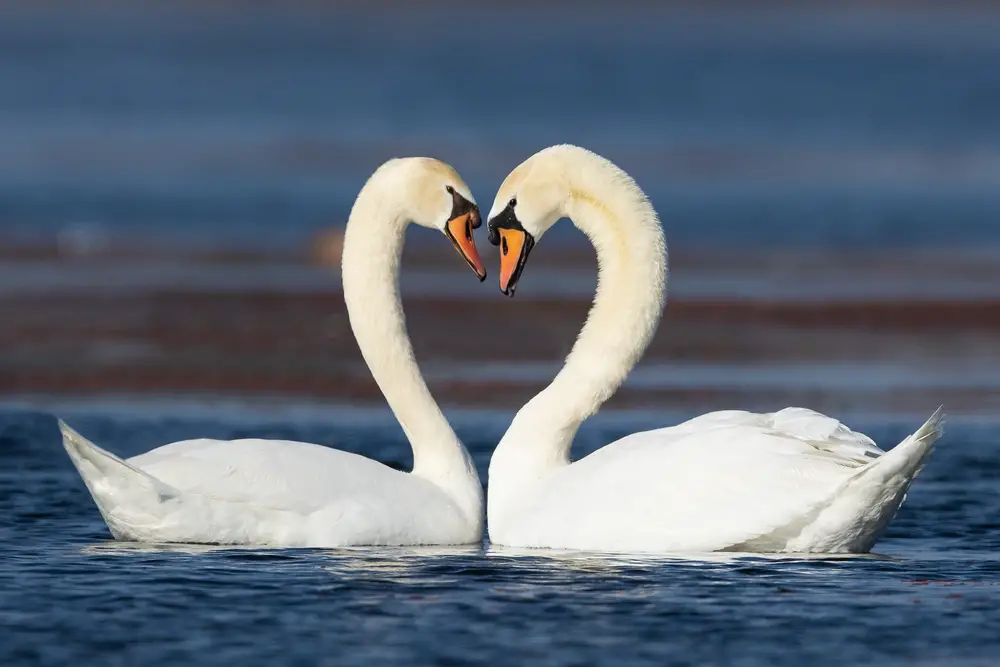
Swans are known to form monogamous bonds that last for years—sometimes for life. Their loyalty isn’t performative; it’s grounded in companionship, mutual care, and ritual. They don’t bail when things get tough or when a more photogenic swan swims by. They reinforce their connection through small, repeated gestures. Swans don’t just love—they *invest*.
Contrast that with your situationship, who can’t even invest in a second date without internally spiraling. The second things feel “too real,” they retreat like it’s a hostage negotiation. Swans communicate through synchronized swimming; your person struggles to sync a phone call. It’s ironic that an animal with a brain the size of a walnut understands loyalty better than someone who owns a smartphone.
10. Parrots Remember Who Was Kind, And Return the Favor
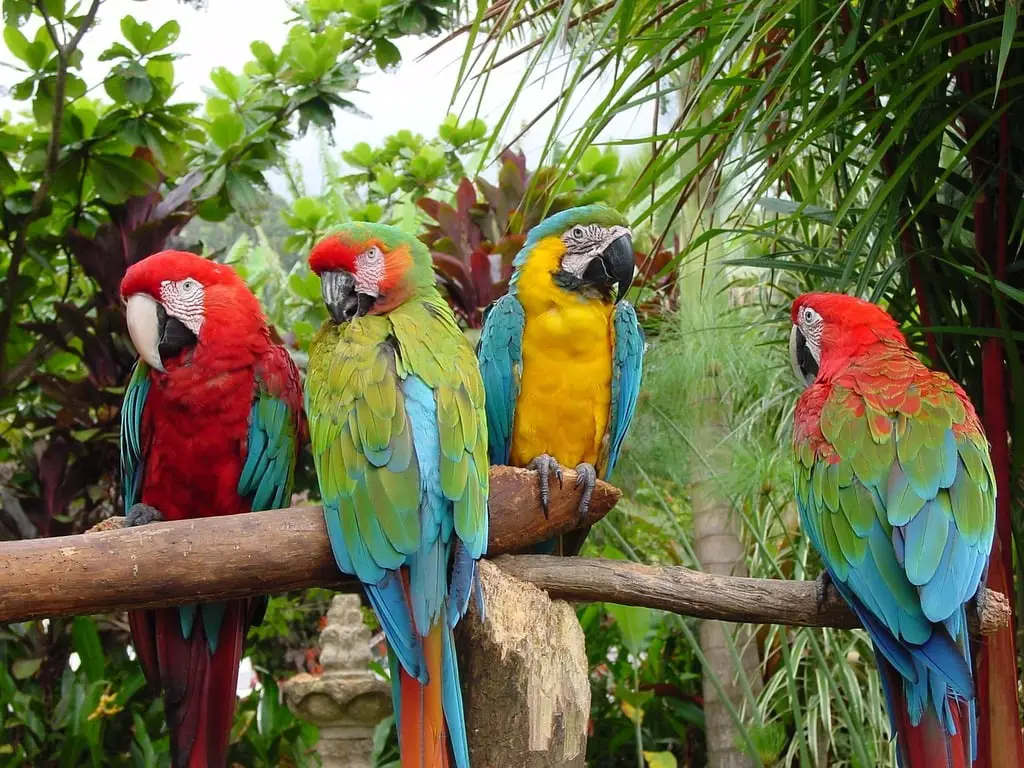
Parrots are shockingly emotionally intelligent. They remember not only voices but emotional tones and behavior patterns, rewarding those who treat them well. They recognize fairness, reciprocity, and can even become emotionally withdrawn if neglected. In the wild, mutual respect earns trust—and trust is everything. Their memories are long, and their standards are high.
Meanwhile, your situationship acts like decency is a favor, not a baseline. They “don’t believe in expectations,” as if treating people well is some outdated concept. Parrots might mimic language, but they live by emotional truth. They don’t fake kindness for clout. Your person, unfortunately, does.
11. Chimpanzees Have Conflict, And Actually Resolve It
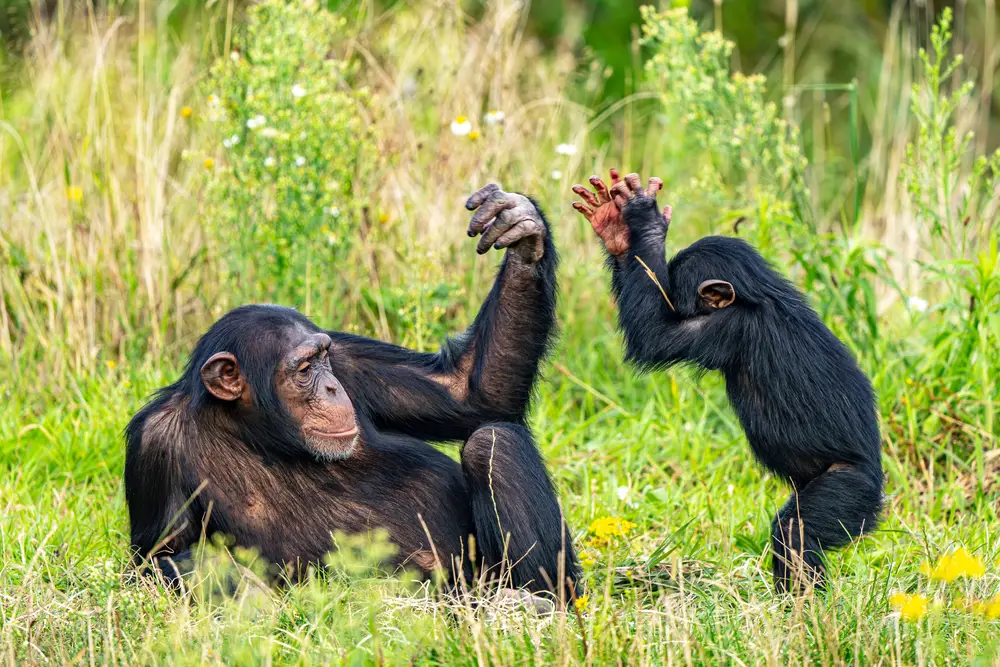
Chimps have real drama: territory wars, betrayals, power struggles. But they also know how to make up. After a fight, chimps will often initiate reconciliation through gestures like grooming or hugging. It’s not weakness—it’s social intelligence. They know unresolved tension fractures the group.
Your situationship, on the other hand, thrives on ambiguity. They’d rather let things fester than apologize. Chimps would call a truce; your person leaves it “up in the air.” One is trying to maintain group harmony—the other is just avoiding emotional labor. Guess which one shares 98.7% of your DNA?
12. Penguins Share Parenting Duty Like Champs
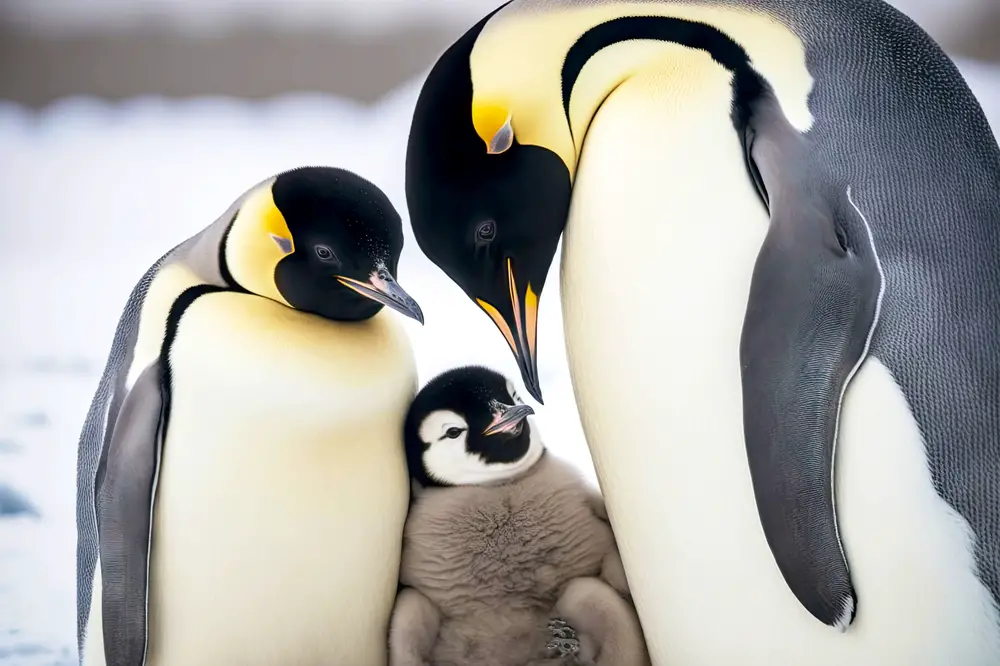
In many penguin species, parenting is a shared gig. While one guards the egg, the other braves harsh conditions to bring back food. They switch off, rest, and repeat. It’s not glamorous, but it’s balanced. No resentment, no scorekeeping—just cooperation.
Your situationship wouldn’t last five minutes in a penguin nest. They think “showing up” is a personality trait. Penguins divide effort with silent agreement; your person can’t even split the Uber fare. They’re not overwhelmed—they’re just underinvested. The coldest thing about this isn’t Antarctica—it’s emotional inconsistency.
13. Horses Sense Your Emotions, And Respond With Empathy
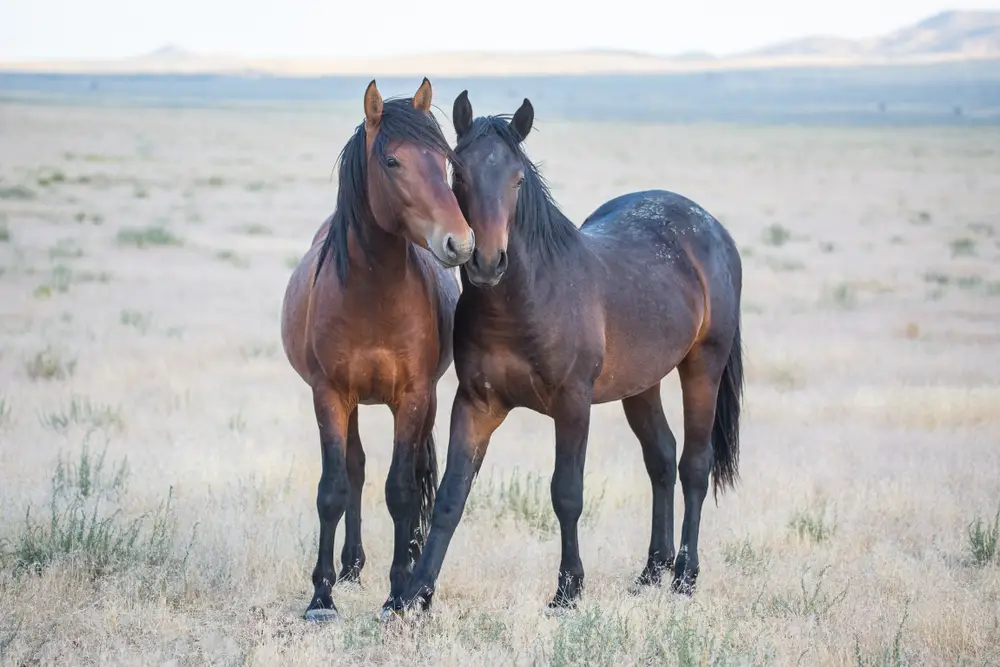
Horses are deeply attuned to human feelings. They can read facial expressions, pick up on stress, and even sync their heart rate with their caretakers. They mirror your tension and calm in real time. Empathy isn’t taught—it’s part of how they survive in social herds. They’re intuitive, responsive, and emotionally present.
Your situationship can’t even register your disappointment without spiraling into defensiveness. Horses adapt to emotional energy; your person dodges it. If a prey animal can mirror your inner world, what’s your situationship’s excuse? Maybe they need a field trip to a stable and a long talk with a stallion. Or maybe it’s time to ride off into your own emotionally available sunset.
